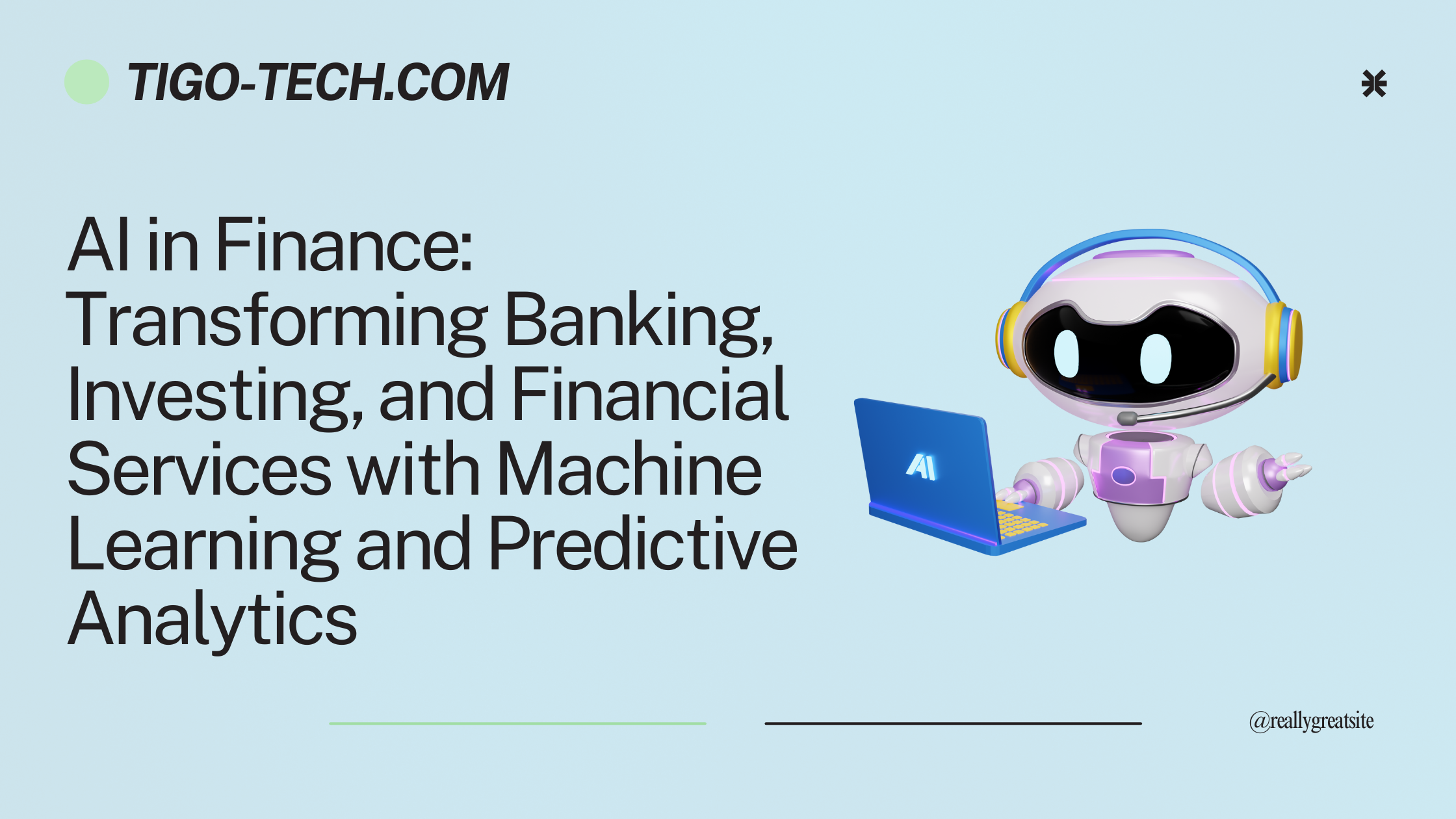Introduction:
Artificial Intelligence (AI) has rapidly gained traction in the financial industry, revolutionizing traditional banking, investing, and financial services. Machine learning algorithms and predictive analytics are empowering financial institutions to make data-driven decisions, automate processes, and enhance customer experiences. In this blog post, we’ll explore the transformative impact of AI in finance and how it’s reshaping the landscape of banking, investing, and financial services.
- Risk Management and Fraud Detection:
AI algorithms analyze vast amounts of data to identify patterns, detect anomalies, and assess risk factors in real-time. Financial institutions leverage machine learning models to detect fraudulent activities, such as unauthorized transactions and identity theft, with greater accuracy and efficiency. By detecting and mitigating risks proactively, AI helps safeguard the integrity of financial systems and protect customers’ assets.
- Personalized Banking Experiences:
AI-powered chatbots and virtual assistants provide personalized banking experiences, offering customers instant support, personalized recommendations, and tailored financial advice. These intelligent systems leverage natural language processing to understand customer queries and preferences, enabling seamless interactions across multiple channels. By delivering customized solutions and proactive assistance, AI enhances customer satisfaction and loyalty in banking.
- Algorithmic Trading and Portfolio Management:
AI algorithms analyze market data, news, and trends to make informed trading decisions and optimize investment portfolios. Hedge funds and asset management firms use machine learning models to identify profitable trading opportunities, manage risks, and achieve better investment outcomes. By leveraging AI-driven insights, investors can capitalize on market inefficiencies and achieve superior returns.
- Credit Scoring and Lending Decisions:
AI-powered credit scoring models assess borrowers’ creditworthiness based on a wide range of factors, including credit history, income, and behavior patterns. Machine learning algorithms analyze historical data to predict borrowers’ likelihood of default and assess loan risks more accurately. By automating lending decisions and reducing manual underwriting processes, AI enables faster loan approvals and enhances access to credit for individuals and businesses.
- Regulatory Compliance and Reporting:
AI technology assists financial institutions in navigating complex regulatory requirements and ensuring compliance with industry standards. Machine learning algorithms analyze vast amounts of data to detect potential compliance violations, monitor transactions for suspicious activities, and generate regulatory reports efficiently. By automating compliance processes and enhancing transparency, AI helps mitigate regulatory risks and ensure adherence to legal and regulatory requirements.
- Customer Insights and Marketing:
AI analytics tools analyze customer data to extract actionable insights, identify trends, and anticipate customer needs and preferences. Financial institutions use predictive analytics to segment customers, personalize marketing campaigns, and offer targeted products and services. By leveraging AI-driven insights, banks and financial services providers can optimize marketing strategies, attract new customers, and enhance customer engagement and retention.
Conclusion:
In conclusion, AI is transforming the financial industry, driving innovation, efficiency, and customer-centricity across banking, investing, and financial services. Machine learning algorithms and predictive analytics empower financial institutions to manage risks, personalize banking experiences, optimize investment strategies, and ensure regulatory compliance. As AI technology continues to evolve, its impact on finance will only grow, shaping the future of banking, investing, and financial services in profound ways.
